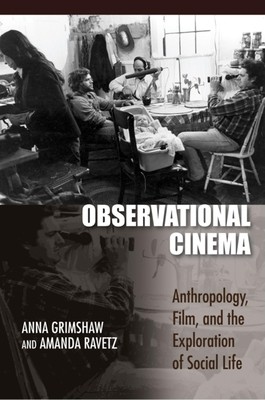
- We will send in 10–14 business days.
- Author: Anna Grimshaw
- Publisher: Indiana University Press
- ISBN-10: 0253221587
- ISBN-13: 9780253221582
- Format: 16.5 x 23.8 x 1.8 cm, minkšti viršeliai
- Language: English
- SAVE -10% with code: EXTRA
Reviews
Description
Once hailed as a radical breakthrough in documentary and ethnographic filmmaking, observational cinema has been criticized for a supposedly detached camera that objectifies and dehumanizes the subjects of its gaze. Anna Grimshaw and Amanda Ravetz provide the first critical history and in-depth appraisal of this movement, examining key works, filmmakers, and theorists, from André Bazin and the Italian neorealists, to American documentary films of the 1960s, to extended discussions of the ethnographic films of Herb Di Gioia, David Hancock, and David MacDougall. They make a new case for the importance of observational work in an emerging experimental anthropology, arguing that this medium exemplifies a non-textual anthropology that is both analytically rigorous and epistemologically challenging.
EXTRA 10 % discount with code: EXTRA
The promotion ends in 23d.16:39:53
The discount code is valid when purchasing from 10 €. Discounts do not stack.
- Author: Anna Grimshaw
- Publisher: Indiana University Press
- ISBN-10: 0253221587
- ISBN-13: 9780253221582
- Format: 16.5 x 23.8 x 1.8 cm, minkšti viršeliai
- Language: English English
Once hailed as a radical breakthrough in documentary and ethnographic filmmaking, observational cinema has been criticized for a supposedly detached camera that objectifies and dehumanizes the subjects of its gaze. Anna Grimshaw and Amanda Ravetz provide the first critical history and in-depth appraisal of this movement, examining key works, filmmakers, and theorists, from André Bazin and the Italian neorealists, to American documentary films of the 1960s, to extended discussions of the ethnographic films of Herb Di Gioia, David Hancock, and David MacDougall. They make a new case for the importance of observational work in an emerging experimental anthropology, arguing that this medium exemplifies a non-textual anthropology that is both analytically rigorous and epistemologically challenging.


Reviews